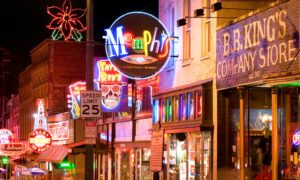
Koopsta Knicca: The Overlooked Horrorcore Visionary of Memphis Rap
Robert Cooper Phillips, better known as Koopsta Knicca, brought a chilling presence to Memphis hip-hop. His eerie flow and dark lyricism helped define horrorcore, shaping Three 6 Mafia’s ominous sound. Yet, his name often fades into the shadows behind his more recognized groupmates. Koopsta’s impact, both within the Mafia and in his solo work, deserves its due.
The Memphis Underground: Koopsta’s Rise with Three 6 Mafia
Born on April 27, 1975, in Memphis, Tennessee, Koopsta Knicca grew up surrounded by the city’s raw underground rap scene. Memphis rap was already carving out its own gritty, lo-fi identity, with artists pushing dark, hypnotic beats and eerie storytelling—a sound that would become legendary.
In the early ‘90s, Koopsta joined Three 6 Mafia, a collective that would redefine Southern hip-hop. His voice, drenched in menace and mystery, fit perfectly within the group’s horrorcore aesthetic.
Three 6 Mafia’s 1995 album Mystic Stylez put Koopsta’s haunting style on full display. Tracks like “Break Da Law” and “Tear Da Club Up” introduced listeners to his hypnotic delivery and grim storytelling. His verses felt more like incantations than rap bars, adding another layer of darkness to the group’s sound.
__________________________________________________________________________
__________________________________________________________________________
But while Three 6 Mafia climbed toward success, Koopsta’s journey was anything but smooth.
The Haunted Flow: Koopsta Knicca’s Signature Style
Koopsta didn’t just rap—he conjured soundscapes of horror. While his Mafia peers often delivered aggressive or rapid-fire verses, Koopsta’s voice slithered through tracks like a ghost creeping through abandoned hallways. His slow, deliberate cadence made even the simplest lines sound ominous.
Many compared his style to Lord Infamous, another Three 6 Mafia legend. But where Lord Infamous leaned into rapid flows, Koopsta’s delivery felt melodic yet unsettling, stretching words like eerie echoes in the dark. His voice became an instrument of its own, a signature that set him apart in the world of horrorcore.
His haunting delivery was influenced by the eerie soul samples that underpinned many Three 6 Mafia tracks, including those from Willie Hutch, whose cinematic production added an extra layer of darkness to the group’s sound.
Essential Koopsta Knicca Tracks:
- “Torture Chamber”
- “Robbers”
- “Crucifix”
- “Blow a N*a’s Ass Off”
__________________________________________________________________________
__________________________________________________________________________
The Solo Odyssey: Da Devil’s Playground
By 2000, Koopsta Knicca parted ways with Three 6 Mafia, leaving behind unfinished business due to legal troubles. But his departure didn’t mark the end—it sparked a new chapter.
In 1999, Koopsta dropped Da Devil’s Playground, his most celebrated solo effort. The album, mostly a collection of underground recordings, doubled down on his eerie aesthetic. Tracks like “Robbers” and “Stash Pot” played out like horror films, filled with paranoia, crime, and supernatural elements.
__________________________________________________________________________
__________________________________________________________________________
Though Da Devil’s Playground never hit the charts, it became a cult classic. Underground fans and horrorcore artists alike cite it as an essential piece of Memphis rap history, a genre heavily shaped by Three 6 Mafia.
The Cycle of Struggles and Redemption
Koopsta’s life mirrored his music—dark, chaotic, and filled with battles. Legal issues followed him throughout his career, and in 2013, he opened up about his struggles with bipolar disorder.
That same year, he released Aliens vs. Humans, a mixtape that included the track “Bipolar”, where he laid bare his mental health battles. It was a rare moment of vulnerability from an artist known for crafting horror-inspired narratives.
Despite the turbulence, Koopsta never stopped making music. In 2013, he rejoined former Three 6 Mafia members to form Da Mafia 6ix, an attempt to revive the group’s early dark energy.
A Legacy Carved in Shadows
On October 9, 2015, Koopsta Knicca passed away at 40 due to complications from a stroke. His death marked another loss for the Three 6 Mafia legacy, following Lord Infamous’ passing in 2013.
Though he never reached mainstream superstardom, Koopsta Knicca left an undeniable mark on horrorcore and Memphis rap. His ghostly presence still lingers in the genre’s darkest corners, influencing artists who embrace eerie, hypnotic flows.
For those unfamiliar with his work, Da Devil’s Playground offers an eerie, thrilling dive into his world—a world of shadows, paranoia, and unforgettable storytelling.
Recommended Listening:
- Mystic Stylez – Three 6 Mafia
- Da Devil’s Playground – Koopsta Knicca
- Aliens vs. Humans – Koopsta Knicca
- 6ix Commandments – Da Mafia 6ix
Koopsta Knicca’s voice may be gone, but his influence still whispers through the speakers of Memphis hip-hop.
More hip-hop features and culture










